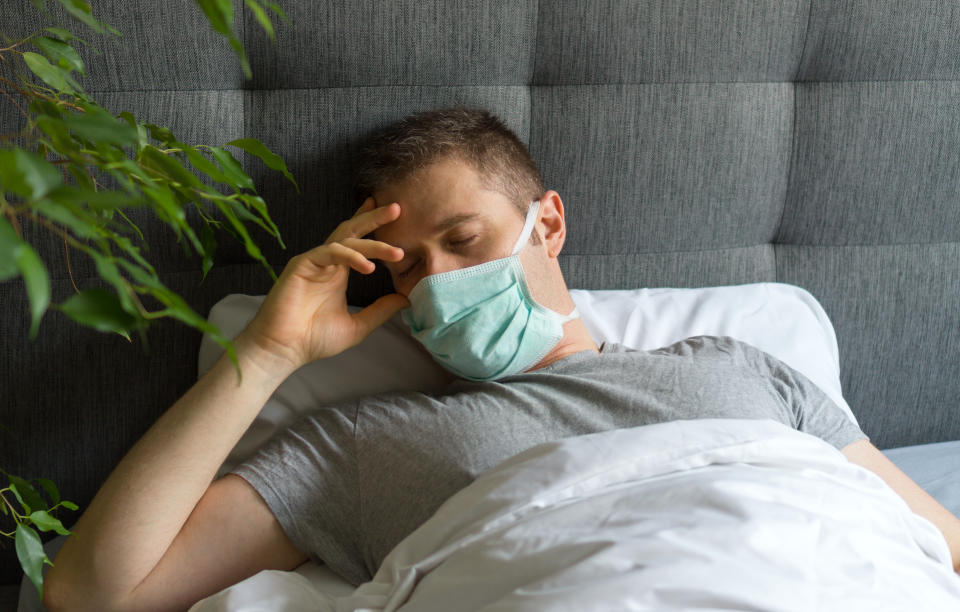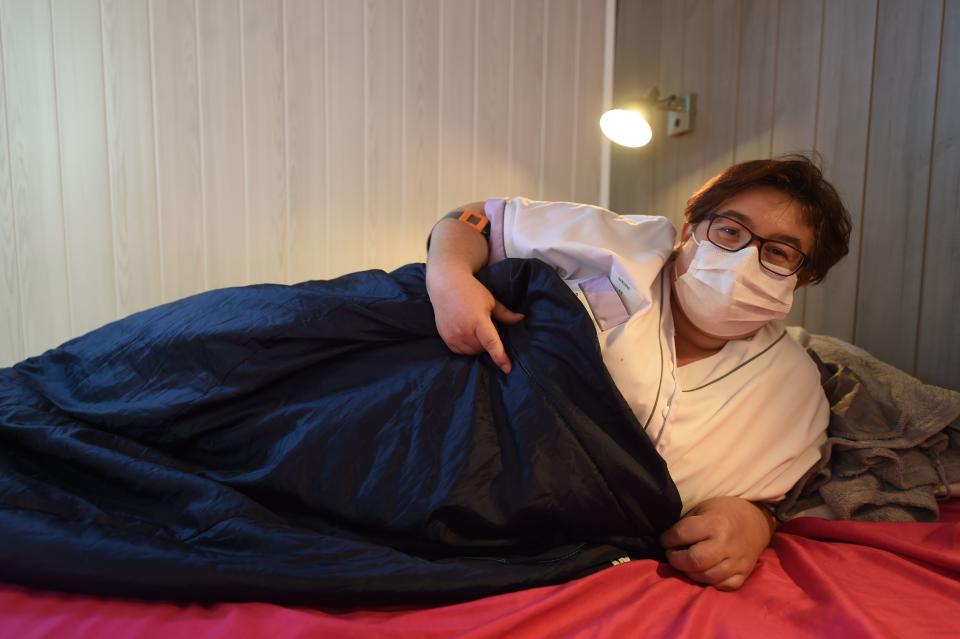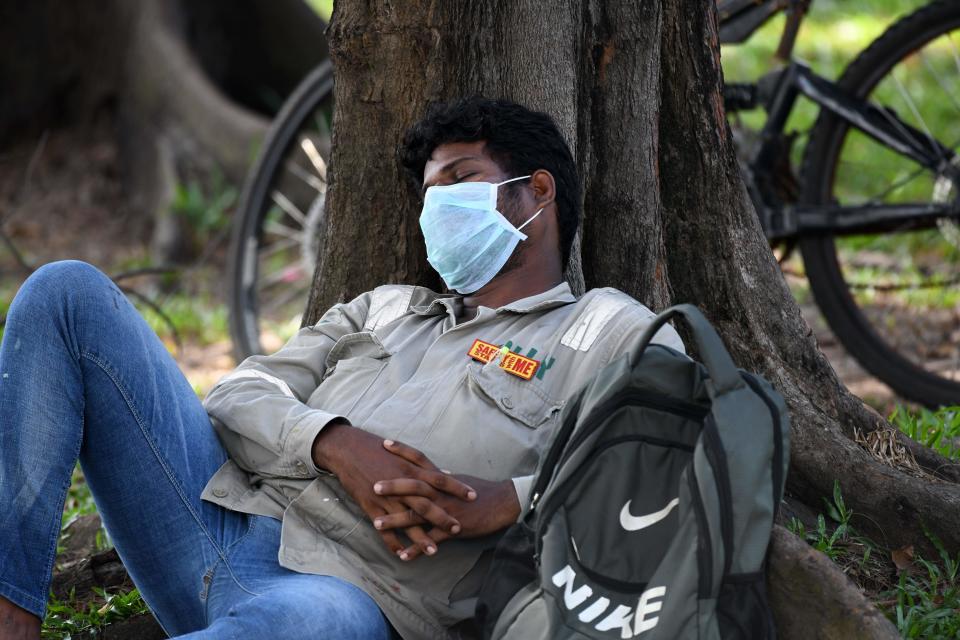Coronavirus: Why the pandemic is triggering vivid dreams
Officials have voiced concerns about how the unprecedented coronavirus pandemic may impact everything from the economy to the NHS.
With the UK on “lockdown”, many Britons have been left socially isolated, financially vulnerable and fearing for their health.
Early research suggests the coronavirus is mild in four out of five cases, however, it can lead to a respiratory disease called COVID-19.
Perhaps a less anticipated side effect of the lockdown is the psychedelic dreams many of us are said to be experiencing.
The phenomenon has become so widespread, scientists around the world are investigating how a viral outbreak could trigger such vivid – not to mention bizarre – nighttime hallucinations.

Coronavirus: Why dreams are becoming more intense amid the pandemic
Sleep, including dreams, is somewhat of a mystery.
The content of our dreams is thought to be related to what we think and experience throughout the day.
Research suggests dreams may allow a person to process intense emotions or stresses within the safety of their subconscious.
Latest coronavirus news, updates and advice
Live: Follow all the latest updates from the UK and around the world
Fact-checker: The number of COVID-19 cases in your local area
Explained: Symptoms, latest advice and how it compares to the flu
The draconian measures in place in the UK enforce Britons to stay in their home as much as possible, venturing out for “very limited purposes” only, like shopping for essentials.
Socialising with people outside of our household is off limits, with the public also being told to ditch non-essential travel and work from home, if possible.
With many Britons complaining of boredom, our minds may be seeking “inspiration”.
Day-to-day life can feel monotonous at the moment, which may prompt the mind to create coronavirus-specific dreams or reach into the past for “content”.
Five research groups around the world are known to be investigating the concept of “coronavirus pandemic dreams”.
Preliminary results suggest the nighttime hallucinations are influenced by stress, isolation and disturbed sleep.
“We normally use REM sleep and dreams to handle intense emotions, particularly negative emotions,” Professor Patrick McNamara from Boston University told the National Geographic.
“Obviously, this pandemic is producing a lot of stress and anxiety.”
Rapid eye movement (REM) is a stage of sleep where the eyes move quickly in different directions. This is when dreams are most likely to occur due to the brain being more active.
Dreams are thought to be created by the same signals that get triggered by psychedelic drugs.
Nerve receptors called serotonin 5-HT2A are then activated, which “turn off” the brain’s dorsal prefrontal cortex, the region involved in memory and attention.
The “turning off” leads to “emotional disinhibition,” when emotions flood the consciousness.
Particularly bizarre dreams may be the mind’s way of processing the barrage of emotions so many are experiencing.
This could be why dreams become more common during life changes, like a new job or the death of a loved one.
Scientists from the US and Switzerland previously found nightmares may help people cope with scary situations in day-to-day life.
When it comes to the types of dreams we experience, this may relate to the metaphors people use to describe what they are going through, for example “my relationship is on the rocks”.
“The difference is when we’re asleep, we are actually on the rock – we’re participating in a trauma where we find ourselves there, rather than just thinking about it,” psychotherapist Matthew Bowes told Dazed.
With the pandemic leaving many feeling like they have lost their footing or are shaken to their core, Bowes claims it is not unusual to dream you are floating or in the midst of an earthquake.
The strict lockdown imposed by the government combined with the daily number 10 press briefings may also make people feel under the control of a greater authority, triggering memories of being back at school.
“School is one of our first experiences of a kind of incarceration – a place where you’re very rule-bound and can’t leave the school premises without permission,” said Bowes.

Coronavirus: Can we ward off vivid dreams?
The vast majority of dreams generally get forgotten.
Disturbed sleep, including frequent waking, may mean more are being remembered.
Scientists from the Lyon Neuroscience Research Center in France found the coronavirus pandemic has increased their study participants’ dream recall by 35%.
The participants are also reporting 15% more negative dreams than normal.
This is particularly true for those in the midst of the outbreak, like front-line healthcare staff or people with an infected loved one.
How much control we have over our dreams is poorly understood.
While it may sound obvious, an anxious state of mind is thought to trigger anxiety-ridden dreams.
Experts have recommended people stay calm by practicing self-care, like going for a walk or having a bath.
Addressing the bizarre visions experienced the night before may also help people get a handle on their dreams.
“Changing the context—the laws of physics and so on—may change the perspective [and] propose another angle, a shift in the understanding which may help to change or play down emotion,” said Perrine Ruby from Lyon.
Bowes stressed, however, we all have a lot on our plate at the moment.
A particularly vivid dream is nothing to worry about and should not cause unnecessary anxiety.

What is the coronavirus?
Since the coronavirus outbreak was identified, more than two million cases have been confirmed worldwide, according to Johns Hopkins University.
Of these cases, over 518,600 are known to have “recovered”.
Globally, the death toll has exceeded 137,600.
The coronavirus mainly spreads face-to-face via infected droplets expelled in a cough or sneeze.
There is also evidence it may be transmitted in faeces and can survive on surfaces.
Most cases are mild, however, pneumonia can come about if the coronavirus spreads to the air sacs in the lungs.
This causes them to become inflamed and filled with fluid or pus.
The lungs then struggle to draw in air, resulting in reduced oxygen in the bloodstream and a build-up of carbon dioxide.
The coronavirus has no “set” treatment, with most patients naturally fighting off the infection.
Those requiring hospitalisation are given “supportive care”, like ventilation, while their immune system gets to work.
Officials urge people ward off the coronavirus by washing their hands regularly and maintaining social distancing.



